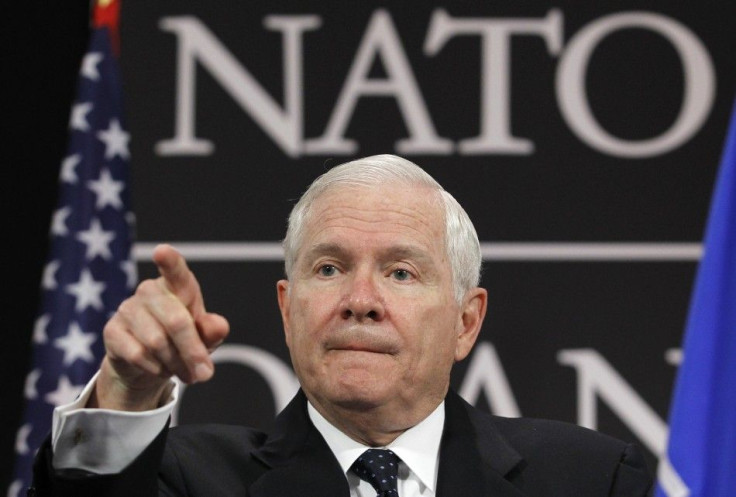US upset with NATO in Afghanistan, says 'dim' future ahead

U.S. Defense Secretary Robert M. Gates has slammed NATO nations for failing to meet their commitments in Afghanistan.
He also criticized them for imposing sweeping restrictions on those forces they do send - which he said hobbled the mission a NewYork Times report stated.
He said he was upset to learn that despite NATO's decision to take command of the air war in Libya, the alliance is running out of bombs after just 11 weeks. He added that the operation would fall apart without continued large infusion of American support, since other NATO nations have not invested in the weapons required to carry out lengthy combat operations.
Gates reportedly told NATO that the United States, exhausted by a decade of war and its own mounting budget deficits, may not see it as worth supporting any longer.
The blunt reality is that there will be dwindling appetite and patience in the U.S. Congress - and in the American body politic writ large - to expend increasingly precious funds on behalf of nations that are apparently unwilling to devote the necessary resources or make the necessary changes to be serious and capable partners in their own defense, Gates said.
He was dismissive of some NATO partners as nations apparently willing and eager for American taxpayers to assume the growing security burden left by reductions in European defense budgets.
Gates, the former C.I.A. director who has served eight presidents of both political parties has spent his final weeks before retirement speaking forthrightly on issues that ranged from preserving Pentagon spending to sustaining combat forces in Afghanistan. But his latest address to the Security and Defense Agenda, a Brussels policy center, was among the most crucial and challenging so far.
Despite signs of real progress in Afghanistan, the mission has been weakened by the inability of many allies to meet agreed upon commitments, Gates said. The war effort also has been hobbled by national 'caveats' that tied the hands of allied commanders in sometimes infuriating ways, he added, according to the report.
The defense secretary was extremely critical of NATO's command of the Libya operation. After an initial bombing campaign run by the Americans, the alliance took over the air war and Gates warned that NATO may not be up to the task.
The mightiest military alliance in history is only eleven weeks into an operation against a poorly armed regime in a sparsely populated country - yet many allies are beginning to run short of munitions, requiring the U.S., once more, to make up the difference, Gates said.
While the Libya war endorsed by NATO nations in consensus, hardy half of them are really participating, and less than a third are carrying out strike missions.
Frankly, many of those allies sitting on the sidelines do so not because they do not want to participate, but simply because they can't, Gates said. The military capabilities simply aren't there.
The Libya operation has proven the alliance is desperately short of intelligence, surveillance and reconnaissance aircraft, as well as aerial refueling planes - all are crucial to modern combat. The United States still is supplying the largest share of all of those to the NATO effort, even thought it pulled most of its strike aircraft out of the operation, the report stated.
Gates suggested that the main issue has been the lack of military investment on the part of many NATO nations. For all but a handful of allies, defense budgets - in absolute terms, as a share of economic output - have been chronically starved for adequate funding for a long time, with the shortfalls compounding on themselves each year, he said.
Gates in his statement said, Looking ahead, to avoid the very real possibility of collective military irrelevance, member nations must examine new approaches to boosting combat capabilities - in procurement, in training, in logistics, in sustainment.
© Copyright IBTimes 2024. All rights reserved.





















